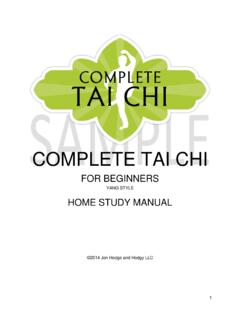Transcription of Barriers of Implementing Evidence-Based Practice in ...
1 American Journal of Nursing Science 2020; 9(1): 35-42 doi: ISSN: 2328-5745 (Print); ISSN: 2328-5753 (Online) Barriers of Implementing Evidence-Based Practice in Nursing Profession: A Literature Review Munirah Alatawi*, Eman Aljuhani, Fatimah Alsufiany, Kawakeb Aleid, Rehab Rawah, Sara Aljanabi, Maram Banakhar Faculty of Nursing, King Abdulaziz University, Jeddah City, Saudi Arabia Email address: *Corresponding author To cite this article: Munirah Alatawi, Eman Aljuhani, Fatimah Alsufiany, Kawakeb Aleid, Rehab Rawah, Sara Aljanabi, Maram Banakhar. Barriers of Implementing Evidence-Based Practice in Nursing Profession: A Literature Review.
2 American Journal of Nursing Science. Vol. 9, No. 1, 2020, pp. 35-42. doi: Received: January 5, 2020; Accepted: January 18, 2020; Published: January 31, 2020 Abstract: Background: Evidence-Based Practice is important in improving the overall quality of patient care, enhance nursing Practice and increase the confidence in decision-making. Evidence-Based Practice is a technique used in solving clinical issues regarding patient care by integrating well-designed evidence with patient preferences, patient assessments, and health professionals. This review aims to explore Barriers that confront nursing in the implementation of Evidence-Based Practice .
3 Consequently, by determining some of the Barriers to the implementation of EBP among nurses, health care systems can form solutions that allow the health centers to avoid such issues and execute the approach among health care providers. Methods: peer review was undertaken following a literature search in the databases involved CINAHL, MEDLINE and EBSCO Web of Science databases. Included studies were from October 2018 to December 2018, English language and peer-reviewed studies that aimed to explore the organizational and individual Barriers within the healthcare setting. The quality appraisal tool was used to appraise all the included studies.
4 Results: A total of 12 studies were included. Six studies were quantitative, five studies were qualitative, and one study used mixed methods. Four organizational Barriers to Implementing Evidence-Based Practice among nurses were found by reviewing the literature which is ("lack of support and supervision", "lack of training" and "education", "limited resources and time restriction ). While, four main themes were considering as an individual barrier to Implementing Evidence-Based Practice among nurses: ("lack of nurses' knowledge", "skills and awareness regarding use the Evidence-Based Practice ", "lack of professional characteristic", "nurses' attitude and experience in using" and "language barrier in using or Implementing Evidence-Based Practice ").
5 Conclusions and implications for future Practice : Nursing administrators and educators have the main role to facilitate Evidence-Based Practice implementation among nurses, therefore; the findings of this review can help to overcome the identified Barriers . Training and education are important to enhance the knowledge and skills of nurses to use Evidence-Based Practice . Time management, providing the required resources and adequate supervision can facilitate the implementation of Evidence-Based Practice which positively influences the quality of care. For further research, it is very fruitful to investigate the common Barriers of EBP in one specific culture such as the middle eastern culture.
6 Furthermore, future research may focus on Barriers of Implementing EBP related to the patients and their families. Keywords: Implementation, EBP, Barrier, Obstacle, and Challenge 1. Introduction Evidence-Based Practice (EBP) is a technique used in solving problems regarding patient care by integrating well-designed evidence with the patient preferences, patient assessments, and health professionals expertise leading to lower health costs, better patient outcomes and safer care [1]. Furthermore, this approach has been promoted as a method for patients to receive the best services [2].
7 Nowadays, the health care system faces the challenge of providing consistent and high-quality services. If it is well implemented and 36 Munirah Alatawi et al.: Barriers of Implementing Evidence-Based Practice in Nursing Profession: A Literature Review utilized in health care facilities, EBP helps in improving the overall care for patients [1]. Four major steps are followed in Implementing EBP to solve a clinical problem as well as to assist the healthcare professionals in decision making. Firstly, healthcare professionals need to cultivate a spirit of inquiry and develop a clear clinical question regarding the patient's issue [3].
8 After formulating the clinical questions, nurses need to search in the literature for clinically relevant articles that explain the problem the patient might be experienced [2]. If the nurses are successful in finding clinically relevant articles, they need to evaluate the included studies to determine how useful and valid they are. It is important to evaluate the quality of the included articles because some of the procedures or tests that may have been discussed regarding patient care may be outdated or irrelevant. Finally, after conducting an evaluation, the nurses can implement and disseminate the findings that they found useful in their clinical Practice [2].
9 Nurses are often placed in a convenient position to enhance the quality of health care services that are based on knowledge and research [4]. Several advantages were found in applying EBP in the provision of health care services. EBP ensures that health professionals are delivering patient care that is innovative and, thus, guaranteeing better outcomes for patients [4]. Evidence-Based Practice also contributes to the science of nursing and increases the confidence in decision-making, resulting in ideal outcomes [4]. Finally, EBP maintains certain health practices relevant and current [4].
10 In the health care system, nurses make up the greatest percentage of health care providers, meaning that their role in the promotion of health care and delivery of quality services is massive. EBP has become an important subject in nursing and is being integrated into daily practices because it influences the capabilities, responsibility and professional development of nurses [5]. Nurses known for practicing based on scientific evidence make better decisions concerning the delivery of services and care. However, the approach is not being consistently utilized despite the greater professional satisfaction it is known to cause [6].



